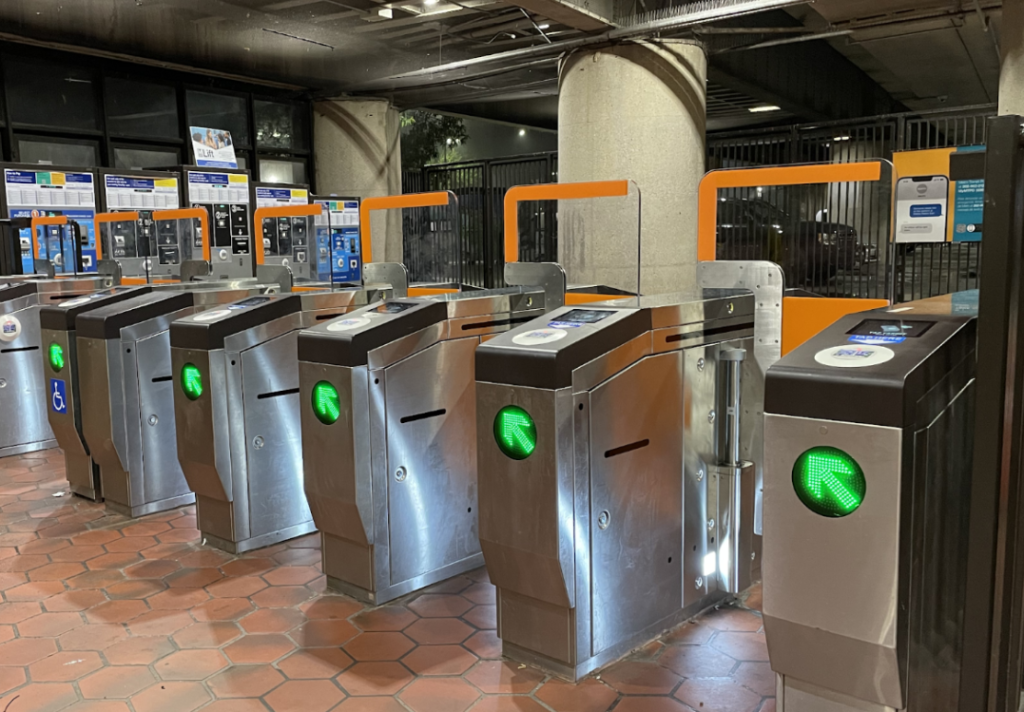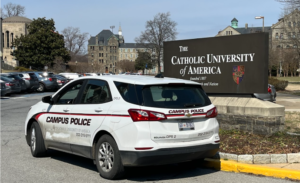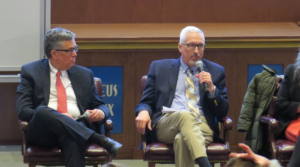SGA Senate Explores Implementation of Metro “UPass” Program at Catholic University

Image Courtesy of WMATA
By Anthony Curioso
Seven years after its first attempt, the Student Government Association (SGA) Senate is again advocating for implementing the D.C. Metro’s UPass program at the Catholic University of America (CUA). The program would grant students unlimited rides on the Metrorail and Metrobus throughout the academic year if implemented.
Elisabeth D’Albero, a junior architecture major and a Senator for the School of Architecture and Planning, is collaborating with Clare Tong, a freshman biology major and a senator for the Class of 2027, to lead SGA’s advocacy efforts for the UPass program.
Tong shared that she became interested in looking into a UPass program for CUA after hearing similar programs operating at other universities.
“When I was touring schools during my college application process, I also toured George Washington University, which specifically marketed that their students have access to the UPass program,” Tong said.
Meanwhile, D’Albero shared that her involvement in advocacy for the UPass program came at the request of fellow architecture students.
“As architecture students, we often have to attend site visits for our various classes, especially design classes, or take the Metro to purchase class materials,” D’Albero said. “During the first three years of the Architecture program, many sites are Metro accessible, which can be convenient. However, some people have mentioned that their Metro bill was racking up.”
In response, the SGA Executive sent out a survey to collect student opinions and measure the feasibility of the program’s implementation. The survey asked students about the frequency of their Metro usage, the potential benefits of UPass, and their willingness to pay extra fees to the University for access to UPass.
Freshman Elementary Education major Anna Vredenburg and sophomore Nursing major Anne Mountcastle voiced concerns about the cost of the program.
“[Senator] Tong sent the survey to our dorm group chat, but I did a price estimate based on how much I might expect to use the Metro over a semester, and it didn’t come close to three hundred dollars,” Vredenburg said. “I don’t want to pay so much money for the UPass and then not use it enough to feel as though I got my money’s worth, so three hundred dollars feels like an extreme overcharge.”
“It’s a great idea in principle, but I hope the University will cover part of the cost,” Mountcastle added.
Senior Nursing major Phoebe Farris commented about the benefits students reap by having access to the UPass program:
“I’m about to graduate, but I know for future nursing students who need to get to [their required] clinicals, the UPass program would mean they wouldn’t have to worry about paying for Metro or gas if the clinical site is Metro accessible,” Farris said.
D’Albero commented on the wide range of survey responses, which she was pleased to see.
“We had people who were all for it and would be willing to pay $300 for it, and…we had people who were on the opposite end of the spectrum,” D’Albero said. “Overall, people seemed willing to pay around the number we determined needed to happen to make it work. The one confusion that many people…weren’t aware of was that the cost is $300 per year, not $300 per semester.”
It is currently too early to know what will happen now that SGA has received the survey responses. The SGA Executive and University Administration will decide how to proceed. D’Albero concluded that the survey responses were an encouraging sign that Senate IX might be able to accomplish what Senate I and Senate II could not regarding UPass implementation.





